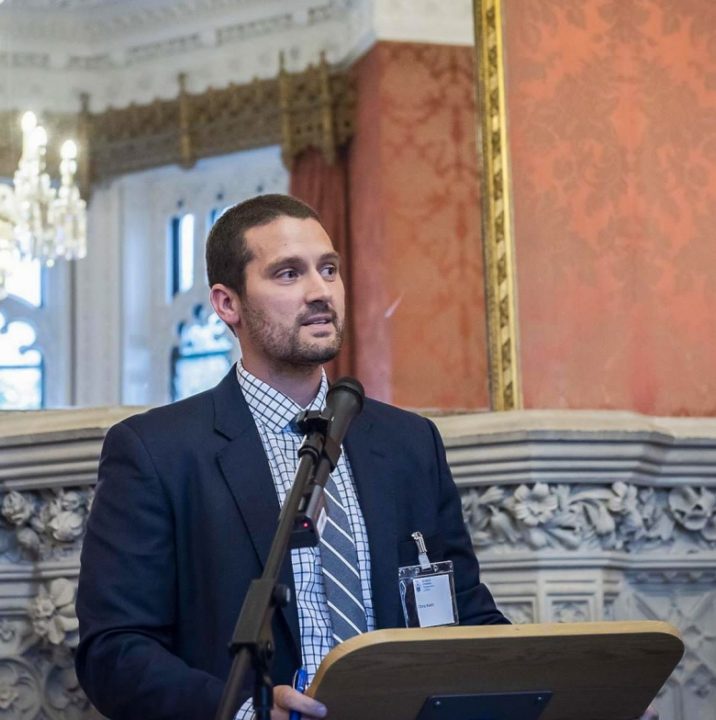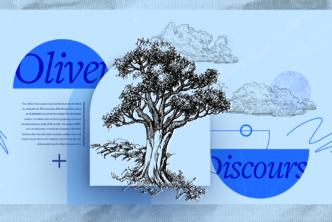I recently had the opportunity to ask a few questions of Chris Keith, the editor of the prestigious NT monograph series LNTS, the Library of New Testament Studies (T&T Clark/Bloomsbury). His responses were colorful and insightful, giving a hint into the direction of NT studies in the future how LNTS is staying ahead of the game.
Logos is currently offering a 29-volume collection of monographs from 2016 for pre-publication, and over the next few months I’ll be interviewing a selection of authors from the collection. Enjoy the interview, and consider making this collection a part of your Logos library during the pre-pub phase.
TB: Can you tell us the history of the LNTS and how the series came about? Has the vision of the series changed much since its inception, or is it holding its line?
CK: The series was originally the Journal for the Study of the New Testament Supplement Series and thus was an augmentation to JSNT. They’re not attached in this way anymore, particularly since JSNT is owned by Sage and LNTS is published by T&T Clark, which is now an imprint of Bloomsbury. It has seen several changes in editorship. I succeeded Mark Goodacre and was very honored to do so because of the excellent work he had done in raising the profile of LNTS. The tagline for the series states that it “offers cutting-edge work for a readership of scholars” and that it focuses on “all the many and diverse aspects of New Testament study.”
We have not departed from that vision, but of course New Testament studies itself has grown even more diverse in recent years so it’s only natural to find certain methodological innovations appearing in LNTS now that were not represented in earlier stages of the history of the series. I would also personally consider “New Testament study” to stretch well into the second, third, and fourth centuries, or even down to the modern context depending on the topic, so I have a wide chronological period for the series.
TB: How long have you been the editor of LNTS, and where do you see the series going in the future?
CK: I have been the editor for four years now. I suppose I see it largely remaining on the trajectory that it is on now. Since becoming editor, I’ve made a strong effort to complement the PhDs we publish with more books by established authors. I aim to contract only seven or eight PhDs in a year, and so the competition for those contracts has really intensified. We have also cut way down on publishing Festschriften, though that is a trend we share with several other presses.
TB: What are some of the major changes in New Testament studies that you have observed in the last number of years, and are there any new approaches gaining traction that you have come across and are currently publishing in the series?
CK: That’s a great question. There are a number of ways to respond to it. In terms of topics, it seems I get a manuscript or proposal on Lukan Christology about every other day, so clearly it’s boom days for that business. There’s clearly also been something of a renewal of NT textual criticism, and along with it more sociologically oriented approaches to Second Temple and NT book culture. Along those lines, I was really happy that LNTS got Brice Jones’s book, New Testament Texts on Greek Amulets from Late Antiquity and am proud to have had a hand in publishing it.
Other general trends are also interesting to me, both as a scholar and an editor: an increasing shift away from hypothetical sources in positing composition histories; political readings of early Christianity; reception studies. In terms of reception studies, I think we’re just seeing the beginning of studies on the impact of the Bible or New Testament in certain social contexts. Along these lines, I was really happy to have Jennifer Kaalund’s Reading Hebrews and 1 Peter with the African American Great Migration in LNTS. I’m also clearly interested in recent developments in historical Jesus studies.

There are, however, some other major changes in New Testament studies as a discipline that has impacted series like LNTS. In the UK context, for example, the Research Excellence Framework has had a tremendous impact on the shape of scholarly output as well as the timeline. Generally speaking, commentaries and textbooks aren’t REF-able, so it means that more people are writing books that would be published in monograph series or similar venues. It also, however, means that sometimes books and ideas don’t get the opportunity to mature because everyone is trying to make sure their books are published in time to be submitted.
The general fallout from the 2008 economic crash, and its impact on the academy, has had a similar effect. Competition for jobs is so intense that there is more incentive to submit a PhD for publication before the author has had time really to turn it into a book, or perhaps the best book that it could be.
More positively, I think another change is that the field has made some progress in facing the gender and racial inequality that has characterized it for so long, though of course we have much distance yet to travel. Monograph series like LNTS have the opportunity to be on the front line on this issue, particularly with junior scholars trying to publish their first book(s). We certainly have not arrived, but I am proud of the efforts that LNTS has made along these lines and aim to continue them.
TB: The advisory board for the LNTS reads like an All-Star team of NT scholars. How did you assemble this incredible line-up, and do you foresee any additions to the team in the near future?
CK: Ha! Thanks for the compliment, but Mark Goodacre assembled most of them before I became the editor. Of those I added, I got them on board simply by sharing my and Dominic Mattos’s vision for the series, asking for their help, and promising not to overwork them. I am not at the moment looking to add anyone new to the team, but I’m always thinking about good possibilities.
TB: Facing such an intimidating board, how would you advise scholars considering submitting a manuscript to you for the series? And why would they aim for LNTS instead of another series in OUP, CUP, Wipf & Stock, or otherwise?
CK: My advice, simple as it is, is not to think about the board at all. To the extent that you can be aware of it, don’t bend your work toward a possible reader. Just do the best work that you can. Revise it furiously before submission. It should also be said that LNTS relies on a whole network of readers for manuscripts that extends far beyond the editorial board. So it’s not guaranteed that an author will get a member of the board for their reader, though it’s obviously possible. As to why they might want to publish in LNTS rather than somewhere else, it probably needs to be said that LNTS will not be the right place for everyone. There are many excellent publication venues.

As to why they might, nevertheless, choose LNTS, I think I’d rather focus on what we offer rather than focus on our competitors. We aim to get a response to the author four months from submission. That’s a pretty quick turnaround and we take it seriously. We also have a standing policy that every volume will appear in paperback eighteen months after the hardback is published. So for those authors who want the hardback that will go in research libraries but also the paperback that their aunt and uncle can afford, we can do that. And, ahem, LNTS volumes are also included in Logos base packages, and that can give them a little bump in their royalties. :)
TB: Finally, Why would a young scholar in seminary or theological studies at a university want to own this particular collection of 29 volumes? How might it benefit them now and in the future?
CK: Wow! What a collection! This collection gives a nice indication of the breadth of New Testament studies right now. It also has a nice representation of junior and senior scholars. A young scholar or graduate student should want this for purely selfish reasons–if you cite LNTS volumes consistently in your papers, your professor will recognize that you’re doing real research, not just Googling topics and citing whatever turns up. ????
Apart from such reasons, though, this collection will also give aspiring scholars a clear indication of what’s expected at the monograph level, and what good scholarship looks like. Plus, just add up what all these volumes would cost if you bought them on their own. This is a bargain!
Chris Keith is the Editor of the Library of New Testament Studies, as well as Professor of New Testament and Early Christianity and Director of the Centre for the Social-Scientific Study of the Bible at the Institute of Theology, St Mary’s University, Twickenham, London.






